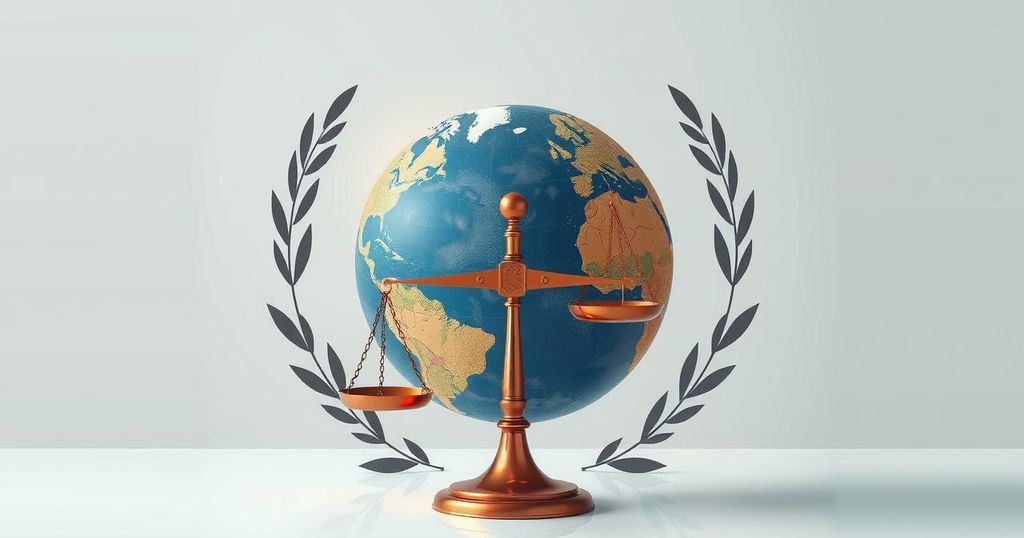President Trump has re-designated Yemen’s Houthis as a Foreign Terrorist Organization, citing threats to U.S. safety and global maritime trade. This decision impacts USAID’s humanitarian efforts. The Houthis continue to instigate violence in the region, asserting their actions are in support of Palestine amid increased international tensions. The FTO tag carries significant legal and operational implications for those interacting with the group, exacerbating the humanitarian crisis in Yemen.
Former President Donald Trump has officially re-designated the Houthis in Yemen as a Foreign Terrorist Organization (FTO). This action stems from an executive order that cites the group’s activities as a threat to U.S. civilians in the Middle East and the stability of international maritime trade. Furthermore, the U.S. Agency for International Development (USAID) will terminate relationships with entities that have engaged with the Houthis, potentially impacting humanitarian efforts in Yemen.
The Houthis gained control in northern Yemen approximately ten years ago amidst a civil war, leading to a devastating humanitarian crisis with over 150,000 fatalities and nearly 20 million people in need of aid. In 2021, Joe Biden lifted the terrorist designation, emphasizing humanitarian needs. However, the Biden administration later reinstated a Specially Designated Global Terrorists designation due to aggressive actions against global shipping and Israel.
Since November 2023, the Houthis have escalated their attacks in the Red Sea and Gulf of Aden, targeting international vessels with missiles and drones. They claim these actions support Palestinians amid the conflict in Gaza and assert targeting is only against ships tied to the U.S., U.K., or Israel. The Houthis’ operations persist despite increased military presence from Western allies and retaliatory strikes from Israel due to missile attacks originating from Yemen.
With the new FTO designation, support for the Houthis from any individual or entity, domestic or international, could lead to criminal prosecution under U.S. laws against terrorism. Humanitarian organizations may struggle to operate in Houthi-controlled regions, where the majority of Yemen’s population resides, as criticized by various human rights groups. Houthi leaders have not publicly responded, though one official characterized it as a potential escalation.
In response to Trump’s designation, Rashad al-Alimi, chair of Yemen’s recognized presidential council, expressed gratitude, declaring it crucial for achieving accountability and fostering stability in Yemen and the wider region. Meanwhile, Abdul Rahman al-Ahnumi of the Houthi radio corporation signaled a readiness to confront what they perceive as an escalating threat.
The Houthis, a militant group based in Yemen, have been the primary actors in a prolonged civil conflict that sparked in 2014 when they seized control of the capital, Sanaa, thus leading to a multi-faceted war involving regional powers including Saudi Arabia and the U.S. Humanitarian crises have worsened over the course of the conflict, with millions requiring assistance. The designation of the Houthis as terrorists has significant implications for aid distribution and regional stability, reflecting the U.S. administration’s strategic responses to the group’s increasing aggressions. The geopolitical context surrounding the Houthis is complex, involving their backer Iran, regional rivalries, and the impacts of the ongoing Gaza conflict. Trump’s recent action turns back the previous administration’s humanitarian relief stance, emphasizing national security concerns tied to the Houthis’ maritime activities and attacks on allies like Israel.
President Trump’s re-designation of the Houthis as a Foreign Terrorist Organization underscores the U.S. commitment to regional safety and counters rising threats associated with the group’s activities. This move has far-reaching effects, not only on geopolitical relations but also on humanitarian efforts in Yemen, which are already critically strained. The response from local leaders indicates a divided sentiment on the consequences of this designation, highlighting the complexities inherent in achieving stability in the region.
Original Source: www.bbc.com






